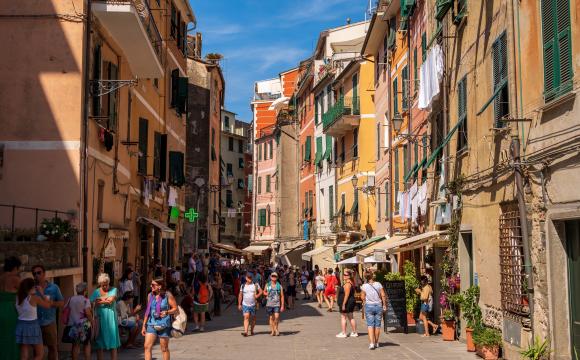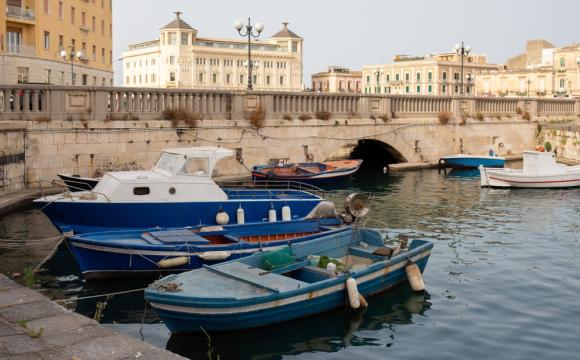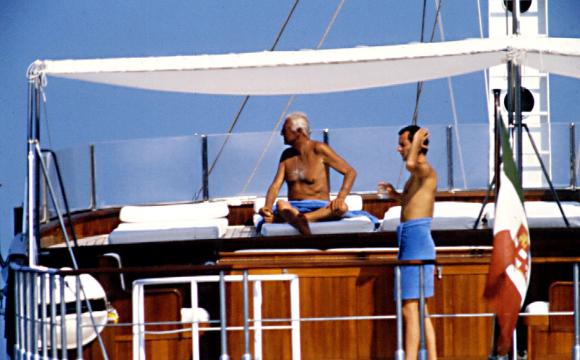
Milan prosecutors on Friday renewed a request that outgoing premier Silvio Berlusconi stand trial for alleged fraud at his private TV network company Mediaset while protesting that a new justice reform law had damaged their chances of winning the case.
The indictments were urged at a preliminary hearing into the probe which centres on Mediaset's purchase of TV rights for US films before 1999 through two offshore firms. Prosecutors Fabio De Pasquale and Alfredo Robledo have asked that Berlusconi and 11 others stand trial on charges ranging from tax fraud, false accounting and embezzlement to money launering.
But they said on Friday that the case had been "destroyed" by a justice reform law passed by the outgoing centre-right government in November 2005 which had reduced the statute on a host of crimes including corruption, false accounting, theft and fraud.
The controversial law was heatedly opposed by the centre left, which accused Berlusconi of serving his own interests, and the magistrature.
But the centre right argued the law would speed up the country's notoriously slow trial system, under which defendants are entitled to two appeals before a sentence can be considered definitive, by forcing magistrates to deal more quickly with cases.
De Pasquale said on Friday that some of the charges against Berlusconi were affected and that by the time the case came to trial, the alleged offences would have happened too long ago under the new law for charges to be pressed. He recommended that the case be shelved against two former Mediaset managers Giorgio Vanoni and Candia Camaggi on the same grounds.
The hearing continues next week.
The accused, who all deny wrongdoing, include Mediaset Chairman Fedele Confalonieri, top former officials at Berlusconi's Fininvest family holding company and veteran Egyptian film producer and former director Frank (also known as Farouk) Agrama.
Prosecutors believe that in deals covering the period 1994-99, the purchase costs of US films were artificially inflated, allowing Mediaset to avoid tax amounting to almost 125 billion old lire. They also say a slush fund was created for Berlusconi and his family.
They have been investigating top British corporate lawyer David Mills, the estranged husband of Britain's Culture Secretary Tessa Jowell. Mills has advised and acted for Berlusconi for more than 20 years and allegedly set up two off-shore companies for
Berlusconi in the early 1990s.
Berlusconi's two eldest children, Piersilvio and Marina, who have also been under investigation for suspected money laundering, have been removed from the main case. Piersilvio Berlusconi is Mediaset deputy chairman while his elder sister Marina is Fininvest chairwoman as well as chairwoman of the group's publishing giant Mondadori.
For Berlusconi, the most serious charge is tax fraud which carries a sentence of up to 6 years.
Berlusconi's lawyer and MP Niccolo' Ghedini said on Friday that it was the "umpteenth bid in Milan" to bring the premier to trial.
He said the four-year investigation was full of "inconsistencies" and stressed that prosecutors had not yet questioned Agrama.
Milan prosecutors have also asked that Berlusconi and Mills be sent to trial in a separate corruption case. They suspect Berlusconi of bribing the British corporate lawyer to protect him in two previous corruption trials. Prosecutors say Mills, who separated from his wife earlier this year, received $600,000 from Berlusconi as payment for not revealing details of the centre-right leader's media empire in two court cases.
Berlusconi and Mills deny wrongdoing, insisting that Mills received the money from Neapolitan shipping magnate Diego Attanasio. Preliminary hearings will start on June 15 to decide whether the two should be indicted. Berlusconi, who is Italy's richest man, has repeatedly accused Milan prosecutors of hounding him for political reasons.
Over the past decade, he has been at the centre of numerous corruption investigations into his vast business empire.
He denies all wrong-doing and has never received a guilty verdict.
In some cases he has been cleared because of the statute of limitations or changes to the law introduced by his own outgoing government.












